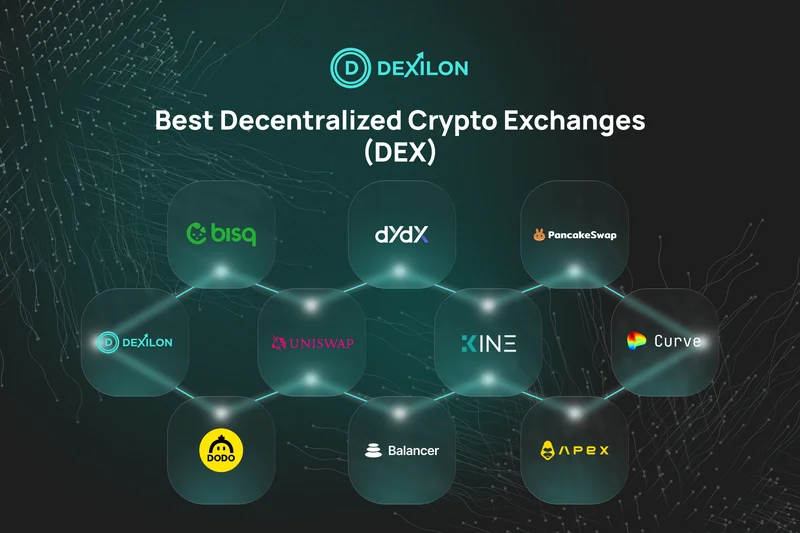XLM Insight | Stellar Lumens News, Price Trends & Guides
XLM Insight | Stellar Lumens News, Price Trends & Guides
It’s easy to get lost in the numbers. When a company like Binance Pulls in Record $14.8B Net Inflow in Q3, the scale is almost abstract. It’s more than the GDP of dozens of countries. It’s a tidal wave of capital that dwarfs competitors like Coinbase and Kraken. But to see that number as just a victory for a single exchange is to miss the entire point. It’s to mistake the vessel for the sea change it represents.
What we're witnessing isn't just market dominance. It's a planetary-scale migration of value and trust into a new digital layer. And the most incredible, most profound part of this story isn't happening on the trading floors of New York or London. It’s happening in the grocery stores of Caracas.
When I first read about "Binance dollars" becoming the standard unit of account in Venezuela, I honestly had to stop and just think about the sheer gravity of that. This isn't a whitepaper theory or a niche use case for crypto enthusiasts. This is survival. This is a nation of millions sidestepping a hyper-inflated currency—one that has had 14 zeros lopped off it since 2008—by adopting a digital dollar, USDT, as their functional money. This is the kind of breakthrough that reminds me why I got into this field in the first place.
Here in the United States, the conversation around crypto is still frustratingly stuck in the past. We argue in circles about securities laws written a century ago, and the result is a landscape of stifled innovation. Look at Binance.US. While its global counterpart is breaking records, the American arm has seen its market share collapse from 10% to a nearly invisible 0.20%. It’s a ghost town, forced to slash fees to zero just to get a flicker of a pulse. Why? Because for years, it was cut off from the U.S. dollar, forced into a crypto-only box by regulatory action that has since been reversed under a new administration.
The damage was done. The ecosystem was starved of oxygen. And it raises a fundamental question: why are we so determined to fit a fundamentally new technology into old, ill-fitting regulatory boxes, especially when its real-world potential is exploding elsewhere?
This is the great disconnect. In the West, we treat crypto as a speculative asset class, a digital casino to be tamed and taxed. We’re so focused on the risks that we’ve become blind to the promise. Meanwhile, in countries where the traditional financial system has failed its citizens, this technology is not an asset. It’s a utility. It's the plumbing for a new, more resilient economic reality. It's like arguing over the zoning laws for a new type of power plant while entire continents are sitting in the dark, desperate for electricity.

The story of Venezuela is the most dramatic example, but it’s part of a much broader pattern. Look at Thailand, where Binance aims to turn Thailand into cryptocurrency hub, supported by a clear legal framework and a population that is already highly crypto-aware. Thailand ranks 17th in the world for crypto adoption, and the number of digital asset accounts is climbing fast. Binance sees this as a key step toward its goal of reaching one billion users—a goal that sounds audacious until you realize who those users are.
They aren't just day traders. They are freelancers getting paid by international clients without losing a huge chunk to wire fees. They are small business owners in Caracas pricing their goods in a stable unit of account—USDT—so they don’t have to reprint their menus every single day. They use TRC-20 USDT—in simpler terms, it's a digital dollar that moves on a super-fast, super-cheap network, making it perfect for everyday payments without the high fees you might see elsewhere.
People are literally building a new monetary reality on their phones in real-time to escape a collapsing system and it’s a powerful, messy, and beautiful example of technology serving a fundamental human need. The cashier at a shop shows you a QR code. You scan it with your phone, send the USDT, and the transaction confirms in seconds. This isn't some futuristic fantasy; it’s the daily workflow for countless households and small businesses. They are building a parallel financial system, not out of ideological fervor, but out of sheer necessity. It’s a digital root system growing in the cracks of a crumbling economic sidewalk, finding nutrients and pathways where the old system has failed.
Of course, this path isn't without its own dangers. There's platform risk, the threat of phone theft, and the ever-present specter of fraud. But these are the growing pains of any true revolution. The pioneers of the internet faced dial-up modems and security holes, but they pushed forward because the promise of a connected world was too great to ignore. We have a responsibility to acknowledge these risks and build better, safer tools—from more secure DeFi wallets to better user education. But to use these challenges as an excuse for inaction is to abandon millions to a broken status quo.
So when you see that $14.8 billion figure, don't just see a corporate balance sheet. See the 7.7 million Venezuelans living abroad sending remittances home instantly. See the shopkeeper in Thailand accessing global capital for the first time. See the countless individuals who are quietly opting into a financial system that is more open, more efficient, and, for them, infinitely more reliable than the one they were born into.
What happens when a system built for survival becomes the foundation for prosperity? Can a grassroots financial network born from crisis evolve into a stable, long-term economic engine for an entire region? I don't know the answer, but for the first time, we have the tools to find out.